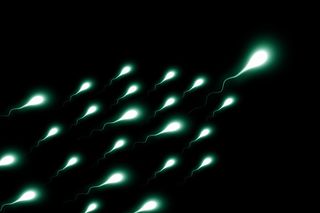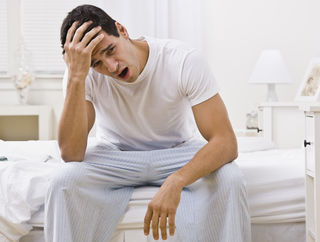Sleep
3 Reasons Why Men Really Ought to Get More Sleep
Facts that should convince men to get more rest.
Posted June 10, 2019 Reviewed by Lybi Ma

Many famous men have bragged about getting by on just 4 to 6 hours of sleep a night, including President Trump, Elon Musk, and Richard Branson. You probably already know that experts say that closer to eight hours of sleep is necessary for good mental and physical health. But did you know it’s also a requirement of good sperm health?
Here are three facts about sleep and male virility that are sure to convince any man he needs a solid 8 hours.
1. Sleep Deprivation Is Associated with Poor Sperm Quality and Quantity.
Humanity is in the middle of a sleep crisis. Over the past few decades, people are getting less and less sleep. But here’s a fact you may not know: During that same time, men’s sperm count (at least in Western countries) has also been on a steady decline.
Are the two trends related? There’s a good chance they are.
In a recent study published in Fertility and Sterility, researchers tracked nearly 700 heterosexual couples who were trying to get pregnant including recording the men’s sleeping patterns. They found that men who got fewer than 6 hours of sleep a night were 31% less likely to impregnate their partner by the end of the study, compared to men who got eight hours.
This study didn’t actually measure sperm health, so we can’t say for sure that impaired sperm quality or quantity was the reason sleep-deprived men were less likely to impregnate a partner. But a study conducted in Denmark did. That study examined the sleep habits of nearly 1,000 men in their late teens and early twenties—and also measured their sperm health. Here’s what they found:
- Men with the poorest quality sleep had a 29% reduction in sperm compared to those with the highest quality sleep.
- Men with the poorest quality sleep had a 1.6% reduction in normal, genetically healthy sperm, meaning they had a higher prevalence of deformed and immobile sperm, compared to those with the highest quality sleep.
2. Sleep Deprivation Is Associated with Smaller Testicles
Maybe you’re a man who’s not currently interested in having children, so you think you can get by with skimping on sleep. Here’s another interesting result to come out of the Denmark study: Men with the poorest quality sleep had testes that were significantly smaller than men with the highest quality sleep. So, the next time you hear some guy brag about getting by on a few hours of sleep, think about that little factoid.
3. Sleep Deprivation Reduces Testosterone
So far, these studies have been correlational—and you probably know that “correlation does not equal causation.” This means that we can’t say for sure if lack of sleep causes a reduction in sperm health and testicle size (although the studies strongly suggest they do). If we really want to get at causality, we'd need to conduct an experiment on sleep and male fertility. Lucky for us, someone already did that. Researchers from the University of Chicago took a group of young, healthy men and forced them to only get five hours of sleep for a week. During the duration of the study, researchers regularly tested these men’s testosterone levels. In the end, these sleep-deprived men showed a 10% reduction in testosterone.
You may be thinking that 10% doesn’t sound like a big drop. It is. A 10% decrease means these men had testosterone levels equivalent to men 10 years their senior. So, in terms of virility, sleep deprivation aged these young men by a decade.

Why does sleep impact testosterone in this way? The answer is that the majority of a man’s testosterone is released while he is asleep. So less sleep means less time for the body to release this vital chemical. And testosterone plays a vital role not only in fertility, but in men’s health more generally. It boosts a man’s energy, sex drive, mood, bone density, physical energy, and muscle mass.
So, even if babies aren’t in your near future, you should still make sure you are getting a solid eight hours of rest each night to ensure your own continued good health.
[To learn more about how to improve your sleep, I highly recommend Matthew Walker's book Why We Sleep]


